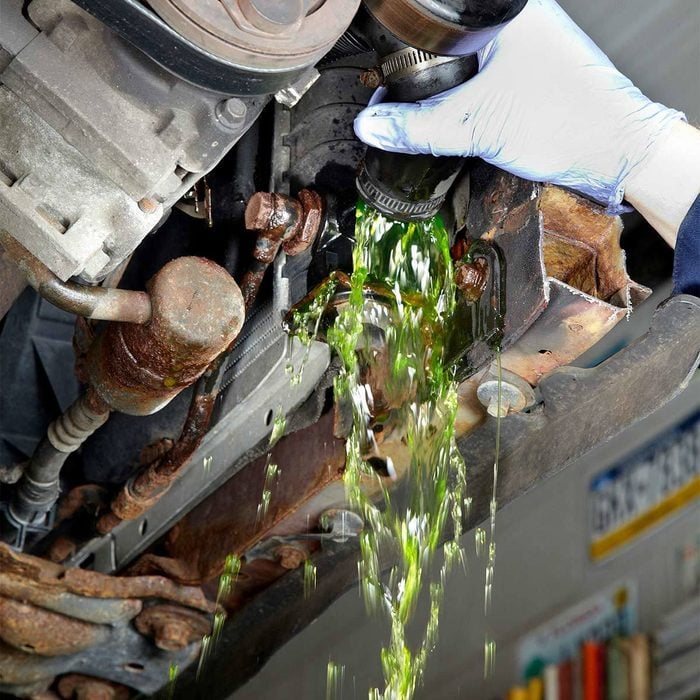Antifreeze is essential to maintaining a healthy engine, but disposing of it poses safety issues. Here's the right way to do it.
How To Dispose of Antifreeze Safely

Locate an Appropriate Recycling or Disposal Facility
Before you change out your vehicle’s antifreeze, take a few minutes to research where to take it for recycling or disposal. Search “antifreeze recycling near me” and you’ll find nearby locations.
Be sure to check whether the location accepts used antifreeze, unused antifreeze or both. Used antifreeze has been diluted with water, so the recycling process is slightly different. If it’s coming from your vehicle, it will always be considered used.
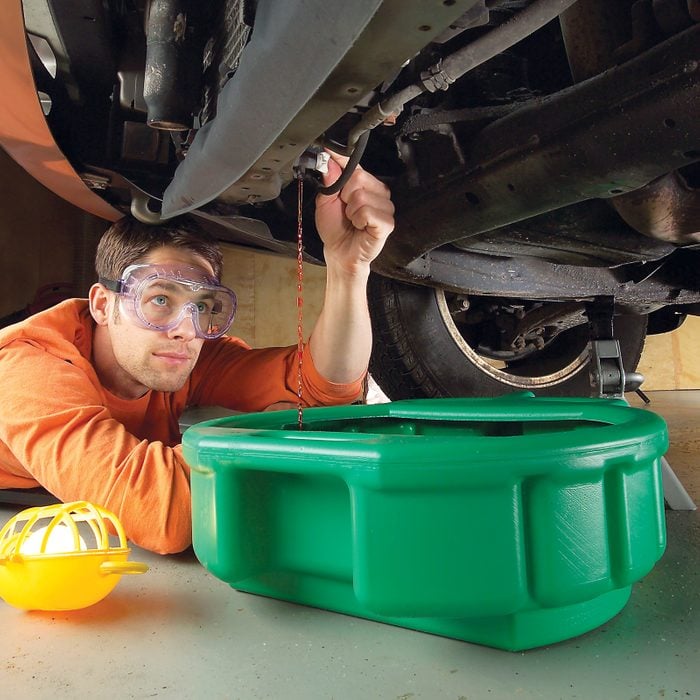
Collect the Old Antifreeze
If you’re recycling unused antifreeze, transport it in its current container. For used antifreeze, you’ll need to drain it from your vehicle and place it in a secure container.
The toxic chemicals in antifreeze can be absorbed through your skin, so always wear gloves when handling it. Antifreeze fumes are rarely dangerous but can cause discomfort. Wear a mask if you’re prone to sinus or lung irritation.
Consult your vehicle’s manual on how to drain the antifreeze. Usually this involves opening the coolant drain plug. Collect the antifreeze in a wide-mouth jug or drain pan that’s large enough to ensure it won’t spill. If in doubt, go with a larger pan than you think you’ll need.
Once you’ve drained the antifreeze, reseal the plug and transfer the liquid to a sealable container.
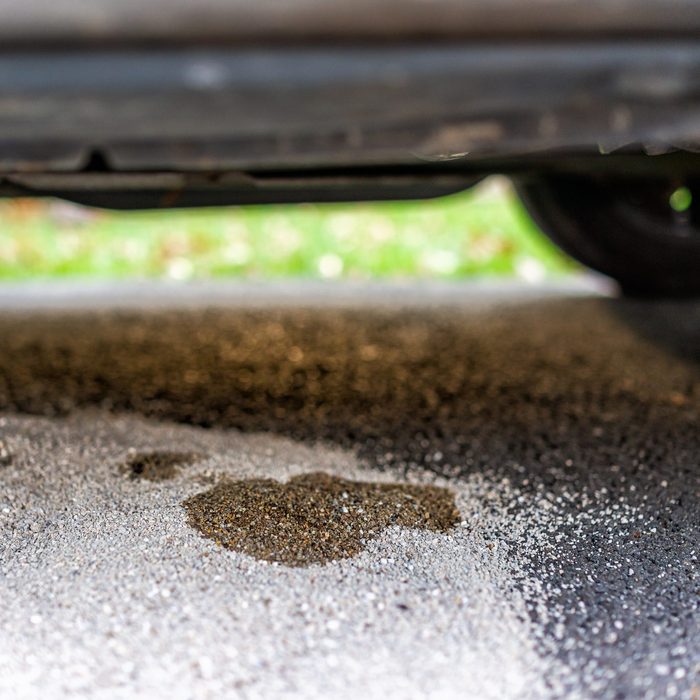
Clean-Up Any Spills Immediately
Even the most careful, conscientious DIYer can sometimes spill some antifreeze. Left on its own, antifreeze will appear to evaporate. But the toxic chemicals remain, smeared across your garage floor or lawn. Over several days or weeks it will break down, according to the Centers for Disease Control and Prevention. But it’s much better to take immediate action.
Put an absorbent material like kitty litter, sand or sweeping compound on the spill. All are better than rags or paper towels, which can become saturated quickly. Let the material soak up the antifreeze, then shovel it into a sealable container. Keep children and pets away from the spill area until it’s fully cleaned.
If antifreeze spilled on you, scrub it off. Any chemicals on your clothes will come out with a standard run through the laundry.
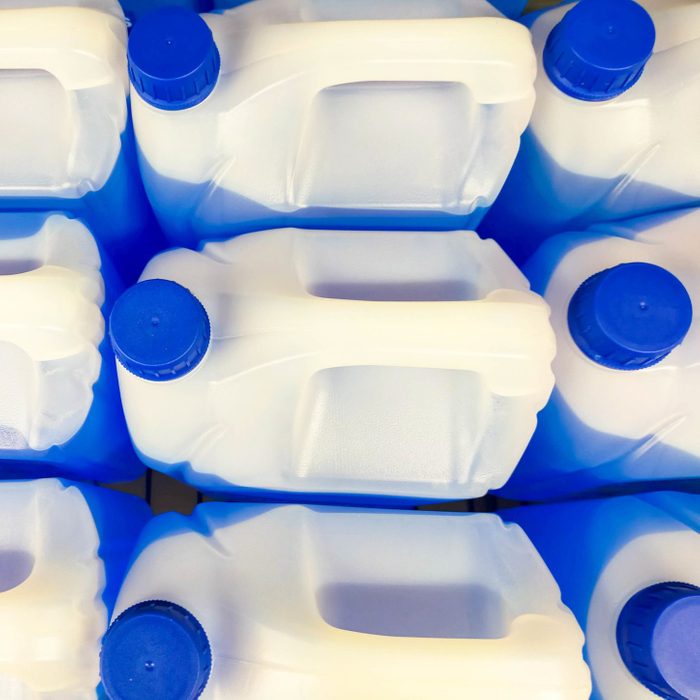
Deliver the Antifreeze to the Appropriate Location
Now that you have the antifreeze in a secure container, you can make the trip to the recycling center.
There’s no real trick to this step, but we do have one tip: Place the jug or container inside a plastic crate or bag in case you have a spill during transport. This is especially true if the antifreeze is inside your vehicle instead of the trunk or truck bed. You don’t want to get antifreeze on your upholstery, then have your kids or pets ride in the back seat.
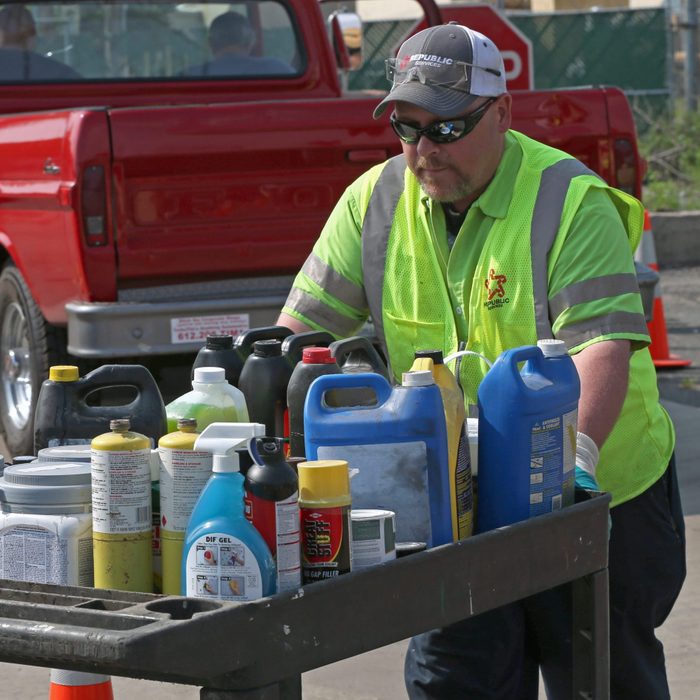
Recycle if Possible
Antifreeze can be recycled and reused. If you have a choice, recycling is preferred to disposal.
Many recycling centers, service stations, auto parts stores and public landfills accept antifreeze. However, not all locations recycle it. Some take it to a secure disposal site. That’s not as environmentally friendly as recycling, but it’s far better than dumping it down the drain or onto your lawn.
Whether you’re recycling or turning it over for disposal, the drop-off is usually as simple as handing the container to the attendant.
